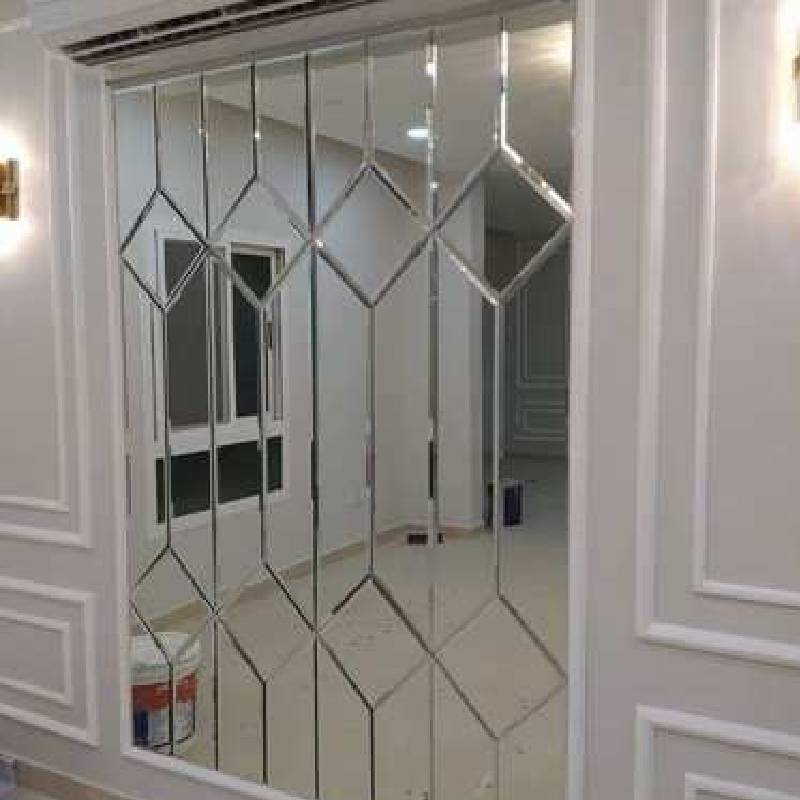The Evolution and Applications of Float Glass Panels
Float glass panels have revolutionized the glass industry since their introduction in the 1950s. The method, developed by Sir Alistair Pilkington, involves floating molten glass over molten tin to create flat, uniform, and high-quality glass sheets. This innovative process not only improved the production efficiency of glass but also significantly enhanced its optical clarity and surface finish. In this article, we will explore the characteristics, production process, and various applications of float glass panels.
Characteristics of Float Glass Panels
Float glass panels are renowned for their exceptional optical qualities. They possess a high degree of clarity and minimal distortion, making them ideal for applications where visual quality is paramount. The process of floating allows for consistent thickness across the entire surface of the glass, typically ranging from 2mm to 19mm, which provides manufacturers with versatility for varying design requirements.
Moreover, float glass panels are inherently smooth due to the process of being formed on molten tin. This smoothness is crucial for a variety of applications, including windows and mirrors. Float glass can also be treated or coated to enhance its properties, such as increasing energy efficiency or improving safety standards. For instance, low-emissivity (low-E) coatings can reduce heat loss in buildings, making float glass panels a staple in modern energy-efficient architecture.
The Production Process
The production of float glass panels involves several key steps. First, raw materials, primarily silica sand, soda ash, and limestone, are mixed and melted in a furnace at extremely high temperatures, typically around 1,700 degrees Celsius. This molten glass is then carefully poured onto a bath of molten tin. The glass floats and spreads out, forming a continuous ribbon of glass.
As it cools, the glass is drawn to the desired thickness. The surface tension of the molten tin helps in achieving a smooth surface. After cooling, the glass is cut into sheets and further processed as needed. Quality control is vital during this phase to ensure that the glass meets industry standards for consistency, clarity, and strength.
float glass panel
Once completed, float glass panels can undergo various treatments
. These treatments include annealing—where glass is gradually cooled to relieve internal stresses—and the application of coatings for specific functionalities. The versatility of float glass allows it to be tempered or laminated, enhancing its structural integrity and making it suitable for safety glazing applications.
Applications of Float Glass Panels
Float glass panels are used in an extensive range of applications, reflecting their versatility and durability. One of the most common uses is in the construction industry, where float glass is utilized for windows, doors, and facades. The transparency and insulation properties make it an energy-efficient choice for modern buildings.
In addition to architectural applications, float glass panels are also vital in the automotive industry. Car windows are predominantly made from laminated or tempered float glass, ensuring safety and protection for passengers while providing clear visibility.
Moreover, float glass panels are widely used in home interiors, particularly in furniture design. Glass tabletops, shelves, and even shower doors benefit from the aesthetic appeal and robustness of float glass. With the growing trend towards minimalism and transparency in interior design, the demand for float glass in residential and commercial spaces has surged.
Finally, float glass panels also find applications in the electronics industry, notably in screens for televisions, computer monitors, and smartphones. Their lightweight yet durable nature makes them ideal for protecting sensitive electronic components while providing crisp visuals.
Conclusion
Float glass panels have marked a significant advancement in the glass manufacturing industry, characterized by their exceptional properties and wide-ranging applications. From enhancing the aesthetics of architecture to ensuring safety in automobiles, the uses of float glass are integral to modern life. As technology continues to advance, the future of float glass panels holds promise for even more innovative applications, solidifying their crucial role in contemporary design and construction.
 Afrikaans
Afrikaans  Albanian
Albanian  Amharic
Amharic  Arabic
Arabic  Armenian
Armenian  Azerbaijani
Azerbaijani  Basque
Basque  Belarusian
Belarusian  Bengali
Bengali  Bosnian
Bosnian  Bulgarian
Bulgarian  Catalan
Catalan  Cebuano
Cebuano  Corsican
Corsican  Croatian
Croatian  Czech
Czech  Danish
Danish  Dutch
Dutch  English
English  Esperanto
Esperanto  Estonian
Estonian  Finnish
Finnish  French
French  Frisian
Frisian  Galician
Galician  Georgian
Georgian  German
German  Greek
Greek  Gujarati
Gujarati  Haitian Creole
Haitian Creole  hausa
hausa  hawaiian
hawaiian  Hebrew
Hebrew  Hindi
Hindi  Miao
Miao  Hungarian
Hungarian  Icelandic
Icelandic  igbo
igbo  Indonesian
Indonesian  irish
irish  Italian
Italian  Japanese
Japanese  Javanese
Javanese  Kannada
Kannada  kazakh
kazakh  Khmer
Khmer  Rwandese
Rwandese  Korean
Korean  Kurdish
Kurdish  Kyrgyz
Kyrgyz  Lao
Lao  Latin
Latin  Latvian
Latvian  Lithuanian
Lithuanian  Luxembourgish
Luxembourgish  Macedonian
Macedonian  Malgashi
Malgashi  Malay
Malay  Malayalam
Malayalam  Maltese
Maltese  Maori
Maori  Marathi
Marathi  Mongolian
Mongolian  Myanmar
Myanmar  Nepali
Nepali  Norwegian
Norwegian  Norwegian
Norwegian  Occitan
Occitan  Pashto
Pashto  Persian
Persian  Polish
Polish  Portuguese
Portuguese  Punjabi
Punjabi  Romanian
Romanian  Russian
Russian  Samoan
Samoan  Scottish Gaelic
Scottish Gaelic  Serbian
Serbian  Sesotho
Sesotho  Shona
Shona  Sindhi
Sindhi  Sinhala
Sinhala  Slovak
Slovak  Slovenian
Slovenian  Somali
Somali  Spanish
Spanish  Sundanese
Sundanese  Swahili
Swahili  Swedish
Swedish  Tagalog
Tagalog  Tajik
Tajik  Tamil
Tamil  Tatar
Tatar  Telugu
Telugu  Thai
Thai  Turkish
Turkish  Turkmen
Turkmen  Ukrainian
Ukrainian  Urdu
Urdu  Uighur
Uighur  Uzbek
Uzbek  Vietnamese
Vietnamese  Welsh
Welsh  Bantu
Bantu  Yiddish
Yiddish  Yoruba
Yoruba  Zulu
Zulu 

